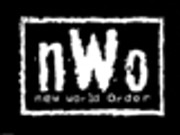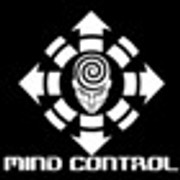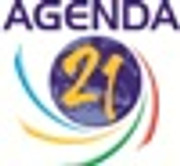Dr. Jim Yong Kim was nominated by President Obama on Friday to be the next president of the World Bank. Secretary of State Hillary Clinton attended the announcement.
Ἀλλὰ τὰ παράδοξα μὲ τὴν Παγκόσμια Τράπεζα δὲν τελειώνουν ἐδῶ.
Διότι ἐπικεφαλῆς ἔχει τεθεῖ ἕνας …γιατρός!!
Διότι ἐπικεφαλῆς ἔχει τεθεῖ ἕνας …γιατρός!!
Ἄλλωστε ὅταν χρειαζόμαστε ἐπενδυτικὸ σύμβουλο ἢ μάνατζερ ἐπιχειρήσεων σὲ γιατρὸ δὲν πηγαίνουμε;
Ἀφοῦ οἱ γιατροὶ εἶναι οἱ «εἰδικοί» γιὰ τὰ πάντα (ρωτήστε καὶ τοὺς σοβιετικοὺς καὶ τοὺς ναζί, ξέρουν αὐτοί…).
Ἀφοῦ οἱ γιατροὶ εἶναι οἱ «εἰδικοί» γιὰ τὰ πάντα (ρωτήστε καὶ τοὺς σοβιετικοὺς καὶ τοὺς ναζί, ξέρουν αὐτοί…).
ΥΓ: Περιττὸ μᾶλλον νὰ προσθέσω ὅτι ὅπως καὶ στὴν περίπτωση τῆς ἐπικεφαλῆς τοῦ Π.Ο.Υ., ἔτσι κι ἐδῶ, πρόκειται γιὰ γιατρὸ ποὺ οὐδέποτε στὴν ζωὴ του ἔχει ἀσκήσει τὸ ἰατρικὸ ἐπάγγελμα. Εἶναι εἰδικὴ κατηγορία γιατρῶν ἐκείνοι, ποὺ ἀποφασίζουν πολιτικὲς «ὑγείας» ὡς εἰδικοὶ ποὺ εἶναι (σὲ τὶ ἀντικείμενο ἀκριβῶς εἶναι εἰδικοὶ δὲν γνωρίζουμε, ἐκτὸς τοῦ ὅτι ποτὲ δὲν εἶναι στὴν ἰατρική… μαγικὰ πράγματα…)
«President Obama on Friday nominated Dr. Jim Yong Kim, the president of Dartmouth College, to be the next president of the World Bank. Kim’s background is in medicine, not economics or business as has been the case with most previous World Bank presidents. He has worked with international organizations, serving as a senior official at the World Health Organization.»
Dartmouth chief tapped to head World Bank
ΦΙΛΟΝΟΙNEW YORK (CNNMoney) — President Obama on Friday nominated Dr. Jim Yong Kim, the president of Dartmouth College, to be the next president of the World Bank.Kim’s background is in medicine, not economics or business as has been the case with most previous World Bank presidents. He has worked with international organizations, serving as a senior official at the World Health Organization.Kim is particularly known for his efforts addressing health concerns, including AIDS, in developing countries. He was one of the founders and former executive director of Partners In Health, a not-for-profit organization that supports health programs in poor countries.“Despite its name, the World Bank is more than just a bank. It’s one of the most powerful tools we have to reduce poverty and raise standards of living in some of the poorest countries on the planet,” Obama said in introducing Kim in the White House rose garden. “It’s time for a development professional to lead the world’s largest development agency.”The World Bank was created along with the International Monetary Fund in 1944 to help the Allied powers shape the post-World War II economic order. It now includes 187 member states, offering loans and grants as well as technical expertise for development projects around the world.World Bank to China: Free up your economy or bust
But while the World Bank’s influence is felt most directly in the developing world, it’s the United States that has a stranglehold on its leadership. Under a tacit agreement in place since their inception, an American has always headed the bank while a European has been in charge of the IMF.The World Bank and the IMF get funding from their members, also known as shareholders, and it is this funding that is the basis for voting power on the organizations’ boards.The board will vote on the new leader for the bank, but it is widely assumed that the U.S. nominee will be the one confirmed by the full body.As the largest contributor to the bank and the IMF, the United States has the most voting shares on their boards at roughly 16%. The United States and Europe together have roughly half these shares, and have long been able to impose their will in matters of leadership.The World Bank announced its short list of nominees late Friday, so Obama was facing a deadline for his pick. The organization expects to pick the new president by its spring meeting the week of April 16.Earlier Friday, South Africa announced it had nominated Nigerian Finance Minister Ngozi Okonjo-Iweala for the post. Jose Antonio Ocampo, formerly the finance minister of Colombia, has also been nominated.World Bank chief nixes return to gold standard
One other American who had been lobbying for the job, Columbia University economist Jeffrey Sachs, withdrew his self-nomination Friday, saying he supported Kim 100%.The World Bank’s projects range from health and education to infrastructure and private sector initiatives. It’s a massive organization, comprising more than 9,000 employees in over 100 locations and offering nearly $250 billion worth of financial assistance over the past five years.“It’s the premier institution in the development arena,” said Colin Bradford, a senior fellow at the Brookings Institution who has also worked at the World Bank and the U.S. Agency for International Development.Last year, France’s Christine Lagarde took over the top job at the IMF from her countryman Dominique Strauss-Kahn after he resigned in the wake ofsexual assault charges that were later dropped.At that time, however, the so-called BRICS countries — Brazil, Russia, India, China and South Africa — issued a joint statement following Strauss-Kahn’s resignation calling Europe’s leadership of the IMF an “obsolete, unwritten convention.”Some in Washington have argued that it’s important for the World Bank head to continue to be an American to ensure continued Congressional funding for the institution. But there is pressure building internationally for a non-American to take over the post.Kim might be a seen as a compromise between those two competing pressures.According to Dartmouth’s Web site, Kim was born in South Korea. His family emigrated to the United States when he was five, and he grew up in Muscatine, Iowa. He had an all-American childhood, becoming valedictorian and president of his high school class, and playing quarterback for the high school football team.Kim got his bachelor’s degree at Brown and his medical and Ph.D. degrees at Harvard, according to the Dartmouth site.While many of the previous World Bank presidents have a background in business and finance, it is not always the case. Paul Wolfowitz — a nominee of President George W. Bush — served as the 10th president from 2005 to 2007, coming from a career in academia and government service. His post immediately before joining the bank was Deputy Secretary of Defense.The position became vacant when current president Robert Zoellick, a former deputy secretary of state who also served as international vice chairman at Goldman Sachs (GS, Fortune 500), announced in February that he would depart when his term concludes at the end of June.
































0 σχόλια